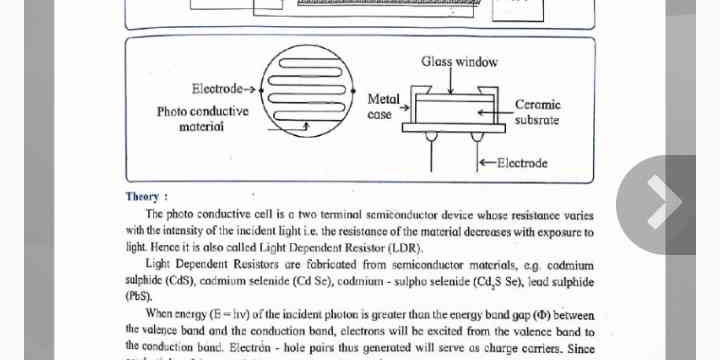What is a photo conductive cell and how does it work?

Understand the Problem
The question appears to relate to the functioning of a photo conductive cell, specifically explaining how its resistance changes with light intensity and discussing its construction and working principles, particularly in the context of Light Dependent Resistors (LDR).
Answer
A photoconductive cell is a semiconductor where resistance decreases with light intensity.
A photoconductive cell, or LDR, is a two-terminal semiconductor whose resistance decreases with increasing light intensity, primarily using materials like cadmium sulfide.
Answer for screen readers
A photoconductive cell, or LDR, is a two-terminal semiconductor whose resistance decreases with increasing light intensity, primarily using materials like cadmium sulfide.
More Information
Photoconductive cells are often used in devices that need to respond to changing light conditions, such as light meters and automatic streetlights. Cadmium sulfide-based cells are common due to their stability and responsiveness.
Tips
A common mistake is confusing photoconductive cells with solar cells. Photoconductive cells vary resistance with light, while solar cells generate voltage.
Sources
- Unacademy Content on Photoconductive Cells - unacademy.com
- Photoconductive Cell - Bartleby.com - bartleby.com
- Photoconductivity - Wikipedia - en.wikipedia.org
AI-generated content may contain errors. Please verify critical information